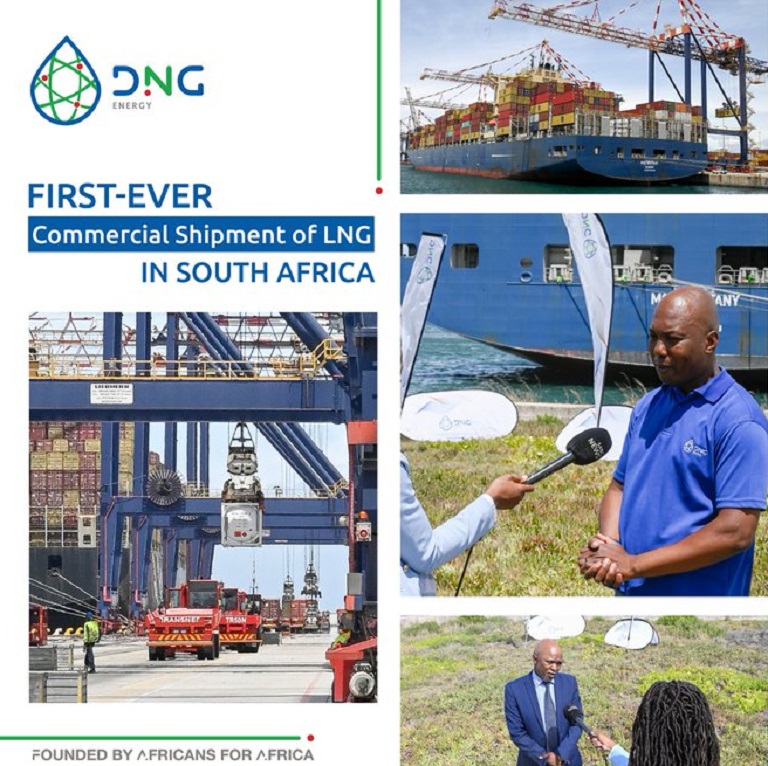Historic day for South Africa’s power and energy market as first-ever commercial shipment of LNG arrives
DNG Energy has received South Africa’s first ever consignment of liquefied natural gas (LNG) from Rotterdam, Netherlands in a historic moment for South Africa‘s energy market. The development is a precursor to the commissioning of DNG’s first floating storage unit delivery in the first quarter of 2022, setting the stage for a new era of growth, competition, and sustainability in the energy market.

This affordable alternative energy is the culmination of a $5 billion, seven-year investment in infrastructure. The development will catalyse the growth of a new gas economy in South Africa, in turn, supporting the shift to more sustainable energy sources, facilitating industrialisation, creating new jobs, and offering commercial customers more choice.
DNG Energy Group CEO Aldworth Mbalati said: “The arrival of the LNG consignment is an inflection point for South Africa’s energy market, marking a key moment in our shift from coal-fired and oil-fired power-generation to cleaner alternatives. Along with renewables like wind and solar, the new generation of gas technology brings low-cost power production capabilities to the market on a massive scale.
“In the context of South Africa’s just energy transition, LNG represents an excellent alternative that will help cut greenhouse gas emissions, reduce air pollution and help combat global warming. It will play a key role in helping the country meet its carbon emission goals and providing power to a growth population as the world transitions towards a zero-carbon energy future.”
In addition to an abundant energy resource for generating electricity and providing fuel for industrial processes and heating, LNG can be used as a raw material to produce chemicals, fertiliser, and hydrogen. It can also be used in several residential, commercial, and transport applications.
“We look at the LNG value chain in a holistic way, from source to consumption, with ambitious expansion infrastructure plans for South Africa, Mozambique, and Nigeria,” said Mbalati. “Over the next few years, LNG has the potential to drive significant growth and job creation, while helping South Africa meet its targets in reducing greenhouse gas emissions by as much as 30% to 40%.”